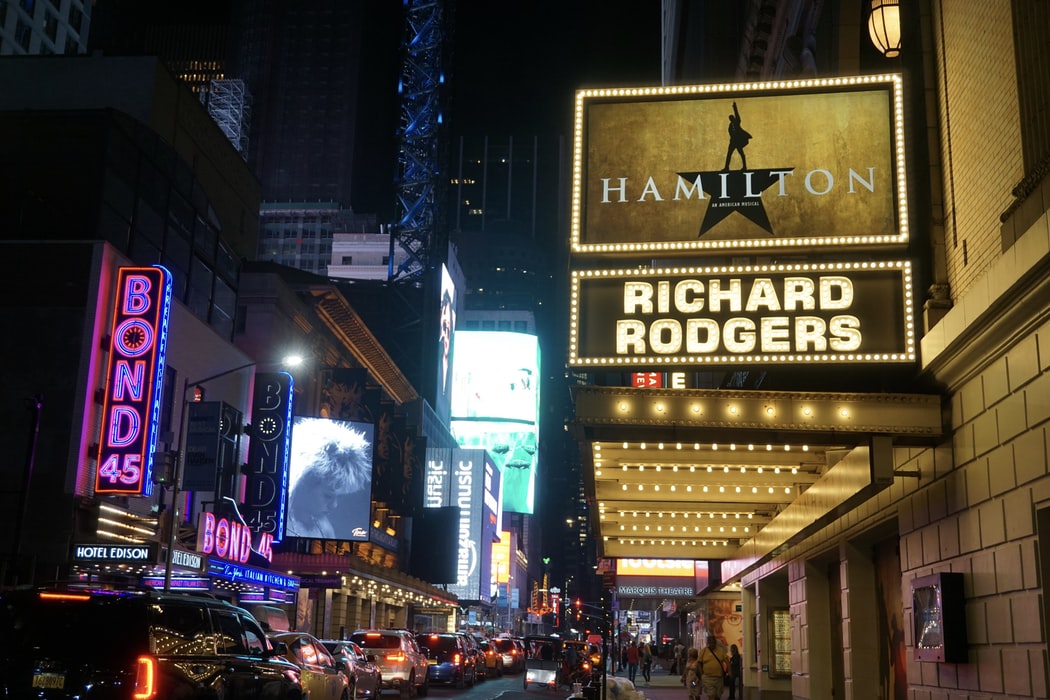What is the legacy of ‘Hamilton’?
Hamilton, the musical masterpiece by Lin-Manuel Miranda, can now be streamed exclusively on Disney+. Featuring the original Broadway cast, including Miranda as the title role, this ‘live’ recording was filmed in 2016 in New York City. Since its release on the new Disney streaming service on Friday 3rd July 2020, Hamilton has been downloaded close to a million times.
Alexander Hamilton was one was the Founding Fathers of the United States. Through a blend of hip-hop, rap, R&B, jazz, and Broadway show tunes, Hamilton tells the story of this confident and charismatic character and his tumultuous relationship with the American politician and “upstart”, Aaron Burr. This Pulitzer Prize-winning musical is centred on America, both past and present. If a legacy is “planting seeds in a garden you never get to see”, then Lin-Manuel Miranda is perhaps closer to his character than one might first expect.
Hamilton gives us a deeper insight into the personal lives of the Founding Fathers.
The enduring popularity of this musical can be attributed to several factors. First and foremost, it is educational (for the most part). Tunes depicting the American Revolutionary War, the presidency of George Washington, and the establishment of the Constitution all feature throughout the musical. As a biopic, Hamilton also gives us a deeper insight into the personal lives of the Founding Fathers. The scandalous Reynolds Pamphlet and the tragic death of Hamilton’s eldest son, Philip, offer a discomfiting look into the personal life of the first Secretary of the Treasury of the United States.
Another important aspect of the musical is the racially diverse cast. In an interview with The Guardian in 2018, the director of Hamilton, Thomas Kail, said: “we are very conscious of what we are doing here. This is not colour-blind casting. It felt essential”. Lin Manuel Miranda, a New York-born writer of Puerto Rican descent, has been very careful to address the cultural significance of such a diverse cast. In a 2013 interview with Radical Media, Miranda said: “I’m not thinking in terms of race at all when I cast it. I’m going to cast the best rappers I can find, whether they’re white or not. It’s a thorny issue, but I think that race and gender should be considered the same way that height and age are — they’re a fact”.
“Immigrants: we get the job done”.
The cast of Hamilton may not reflect the historical figures in this story, but it represents something greater – the cultural and ethnic diversity of the United States in the 21st century. It is no coincidence that the line that received the greatest applause in the film was between Lafayette and Hamilton: “Immigrants: we get the job done”. In a country that is increasingly divided by politics, race, and religion, Hamilton shines a light on the value of togetherness, resistance, and the ongoing fight against oppression.
Finally, one of the most prominent themes throughout the musical is the issue of legacy: “who lives, who dies, who tells your story”. Alexander Hamilton, a man obsessed with his own legacy, dies prematurely in a duel with “my first friend, my enemy”, Aaron Burr. In a final soliloquy, Hamilton reflects on his role in helping to build a country where “even orphan immigrants can leave their fingerprints and rise up”.
The legacy of Hamilton is about more than just the individual, it is a collective history for all those fighting to prove their worth.
The title Hamilton has always been assumed to refer to Alexander Hamilton, as it is a musical biopic of his life story. However, this view is challenged in the final song, as we learn that Eliza, Alexander’s wife, spends the remaining 50 years of her life ensuring her husband’s legacy. Establishing the first private orphanage in New York City, Elizabeth Schuyler Hamilton is remembered as an early American philanthropist and staunch abolitionist. In the final scene of the musical, I believe it is Lin-Manuel Miranda that takes Eliza’s hand, showing her that her husband’s legacy exists today. The final gasp is, in fact, her breaking the fourth wall, seeing the audience for the first time.
Whether this is the intent or not, the emotional power of this closing scene shifts the audience’s perspective from historical actor to narrator, from man to woman, from husband to wife. The legacy of Hamilton is about more than just the individual, it is a collective history for all those fighting to prove their worth in a country where racial discrimination and social inequality still exist. It is for the men, women and children who have been excluded from the ‘American Dream’.

Comments